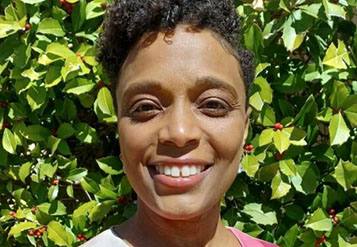Take Note
Leadership: What Is in It for Me?
A s members of a professional association, the time and talent that we dedicate to the organization helps benefit the community as a whole. However, what we receive in return can go beyond the satisfaction of a job well done. Members who have served in leadership capacities have seen real and tangible benefits to learning and strengthening the competencies needed to serve in these roles. Whether you are learning how to delegate tasks, how to run a meeting efficiently, or how to adapt your communication style, leadership roles are an excellent way to invest in and hone your personal and professional skills.
s members of a professional association, the time and talent that we dedicate to the organization helps benefit the community as a whole. However, what we receive in return can go beyond the satisfaction of a job well done. Members who have served in leadership capacities have seen real and tangible benefits to learning and strengthening the competencies needed to serve in these roles. Whether you are learning how to delegate tasks, how to run a meeting efficiently, or how to adapt your communication style, leadership roles are an excellent way to invest in and hone your personal and professional skills.
Jim Adelman, EA, served in one of the most demanding leadership roles of the National Association of Enrolled Agents (NAEA), as president of the board of directors. His time serving in various leadership roles helped him in several ways. “I think the most important benefit that I have experienced is the knowledge learned in understanding all the aspects and departments of the IRS and the available information to navigate the tax representation process. That, coupled with the knowledge gained from other leaders, makes you a better leader by being exposed to a wider view of leadership. Of course, networking cannot be understated and through networking, you become a better listener. The ability to listen is very important in becoming an effective leader.”
Judy Kellogg, EA, of Massachusetts says, “From being in the MaSEA leadership, I taught tax classes and became comfortable with teaching and public speaking. The networking with other board members helped me solve several tax issues and most have become respected colleagues.”
Leadership competencies can come in the form of both hard skills and soft skills. Walden University defines the difference as: “Hard skills are job-related competencies and abilities that are necessary to complete work, while soft skills are personal qualities and traits that impact how you work. Hard skills are often applicable to a certain career; soft skills are transferable to any type of job.”i
Marc Dombrowski, EA, of New York has seen a positive impact to his business as a result of developing his competencies working in team situations. “With the understanding that we are all volunteers trying to get the job of administering the chapter; I totally developed my teamwork aptitudes. These skills helped at the office as my practice grew. And that helps bring in money for me and the family.”
Like Marc, Laurie Ziegler, EA, of Kentucky, served as secretary/treasurer for the NAEA board of directors. When discussing how her experiences in NAEA leadership benefited her professionally, Laurie says, “I sharpened the parliamentary skills I already had. In doing that, opportunities presented themselves for me to be parliamentarian for nonprofit organizations. One such opportunity was last month when I served in that position for an international conference with attendees from five countries.”
While Laurie’s parliamentary skills fall into the category of hard skills, and Marc’s teamwork competencies would be considered soft skills, both recognized an impact to their careers. They are part of a large cohort of NAEA members who give credit to their leadership roles in providing them personal and professional benefits.
Another past president of NAEA’s board of directors, Sherrill Trovato, EA, USTCP, found serving in leadership to be a transformative experience. “Being on the NAEA board and serving as NAEA president gave me skills, adventures, and opportunities I never thought were possible for this ultra-shy kid who was terrified of so much growing up. Stepping outside my comfort zone led me to places I never dreamed were possible; it helped me build confidence and patience (herding cats is a real thing). I’m enormously grateful someone saw something and nominated me for that first position because I never would have done it on my own.”
When considering taking on a leadership role within a volunteer organization, we are often asked to think of the benefit to the organization that we can provide by contributing our time and talents. But what if we stop and consider the leadership opportunity through a different lens? Specifically, what will we receive in return? Yes, there is the satisfaction of making a contribution to our community, but when evaluating leadership opportunities within our professional association, we can also view our time given as an investment: an investment in the skills and competencies that we develop in these roles, which can be carried over into our personal and professional lives.
i https://lifelonglearning.waldenu.edu/resource/what-is-the-difference-between-hard-skills-and-soft-skills.html#:~:text=Hard%20skills%20are%20job%2Drelated,to%20any%20type%20of%20job.



